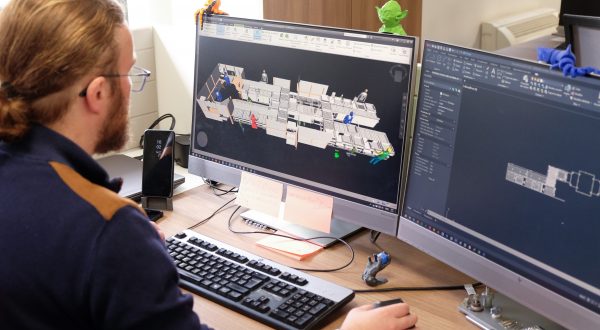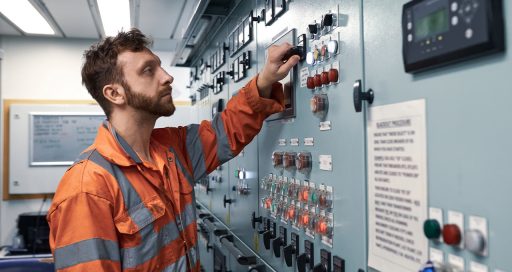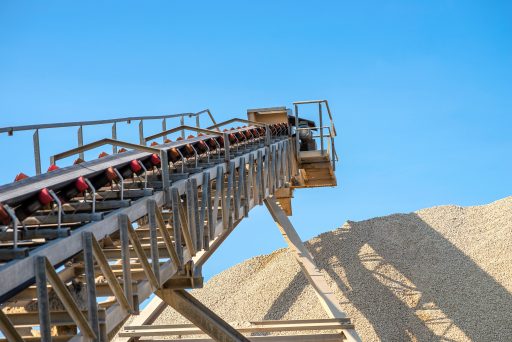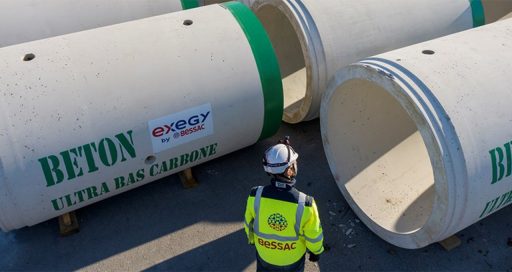Swedish firm Cinis Fertilizer has opened a new environmentally responsible mineral fertiliser production facility based on a circular economy approach. It entrusted Eitech with all electrical installations for the site.

Agriculture is responsible for around 25% of worldwide greenhouse gas emissions. Fertiliser production, which depends strongly on fossil fuels, is one source of the sector’s emissions. On the other hand, fertilisers improve plant growth and productivity, hence increasing global food supplies.
So, how can we feed future generations in a sustainable way? Businesses in the sector are looking for ways to introduce more environmentally responsible production processes. Cinis Fertilizer, a Swedish fertiliser producer, has developed a patented process to produce a water-soluble potassium sulfate in a more circular and environmentally friendly way.
“While the conventional production process requires extremely high temperatures (700 °C), ours works at 28 °C,” explains Roger Svensk, Chief Operating Officer at Cinis Fertilizer. “Our carbon footprint is therefore much smaller, especially since we use low-carbon energy.”
Another eye-catching innovation from this Swedish company involves the recovery of waste from the electric vehicle battery industry, in the form of sodium sulfate, a key component in its production processes. “Eventually, we also hope to source and use this type of waste from the pulp and paper industry,” says Roger Svensk.
“Eitech’s flexibility, which allowed it to tailor its resources to our project imperatives, was a real plus”
Overall, Cinis Fertilizer uses half the energy of the conventional production method and with none of the hazardous by-products such as hydrochloric acid. Cinis Fertilizer is initially using its new production process in a new factory opened in May 2024 in Köpmanholmen, 500 kilometres north of Stockholm.
Electrical engineering
The entire electrical engineering component of this new factory was entrusted to Eitech, the Swedish VINCI Energies brand specialising in electrical installation and engineering work for the industrial, infrastructure and construction sectors.
“Our job was to install cable trays in the switching and processing facilities,” says Patrik Andersson, Business Unit Manager at Eitech. “We pulled and connected all the power cables from the switching apparatus and central units to the frequency converters and motors. Our remit also included system data communications, with optical fibre and industrial bus(1) communication.” Eitech was also responsible for the site’s lighting installations.
In record time
“Eitech’s flexibility, which allowed it to tailor its resources to our project imperatives, was a real plus,” says Roger Svensk from Cinis Fertilizer. “We started the works in September 2023 and handed over in April 2024,” adds Patrik Andersson. “Given the extremely tight schedule, it was a real challenge to organise the numerous trades working simultaneously on the site. But with excellent coordination and with every business working on the project taking this constraint on board, we achieved the target.”
A game changer ripe for export
Cinis Fertilizer aims to build a total of six production plants by 2030. In addition to the Köpmanholmen plant, it plans to open a second facility of the same type in Kentucky, in the United States, in 2026. “We’ll be working with a local electrical vehicle battery production plant,” says Roger Svensk, the firm’s Chief Operating Officer, who sees a benefit in linking the upswing in his own business area with that occurring in the electric mobility sector. “Our new production process is a real game changer, both for the fertiliser sector and for more sustainable agriculture.”
—
(1) An industrial bus is a communication system that transfers data between components and devices at different levels in a manufacturing facility.
Source: https://www.cae-groupe.com/tout-comprendre-sur-les-bus-de-terrain
02/14/2025





